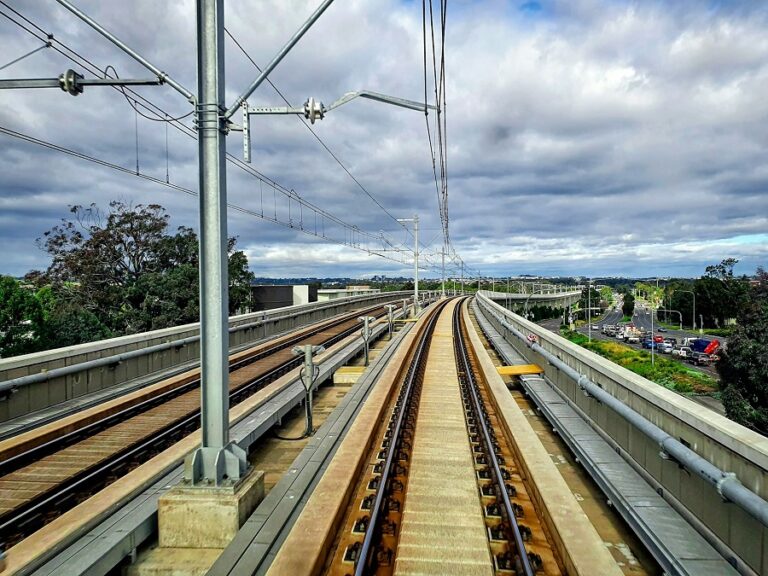Transportation engineering is undergoing a transformation, driven by the need for safer, more efficient, and environmentally friendly solutions. Engineers are leveraging advanced technologies and sustainable practices to create systems that address modern mobility challenges. This article highlights groundbreaking innovations and their real-world impact.
Innovative Transportation Engineering Solutions in 2025
The field of transportation engineering is poised for a transformative year in 2025, as new technologies and methodologies redefine mobility. Among the most notable advancements is the integration of human-centered systems designed to improve safety, efficiency, and public trust in autonomous vehicles (AVs).
A key development highlighted in a recent study introduces a Human-centered Multimodal Interpreter (HMI) system for AVs. This system employs visual interfaces, auditory feedback, and textual explanations to offer real-time, clear, and context-sensitive insights into vehicle behavior. According to research, this approach boosts passenger trust by up to 30% in ordinary driving environments and improves transparency in challenging scenarios such as low visibility and emergency braking situations.
Beyond autonomous vehicles, 2025 also sees strides in infrastructure innovations like adaptive traffic signals and energy-efficient transit systems. Cities are adopting predictive maintenance technologies, using sensors to proactively identify and address infrastructure issues, minimizing disruptions, and extending the lifespan of critical assets.
With these solutions, transportation engineering in 2025 is not only meeting present-day demands but also anticipating future mobility challenges. This focus on humanized and efficient systems ensures a safer, smarter, and more sustainable future for transportation worldwide.
1. Smart Traffic Management Systems
Smart traffic management goes beyond traditional synchronized lights by incorporating real-time data collection and AI.
- Adaptive Traffic Signals: These systems adjust in real-time to traffic density, minimizing congestion and reducing fuel consumption. For example, Los Angeles has implemented city-wide adaptive signals to optimize traffic flow.
- Incident Detection Systems: Advanced cameras and sensors quickly identify accidents and hazards, enabling faster responses and preventing secondary collisions.
2. Next-Generation Public Transit
Public transit is evolving to accommodate growing urban populations through smarter and greener systems.
- Electric Buses: Many cities, such as London and Bogota, have adopted electric buses to lower emissions and reduce operating costs.
- Contactless Payment Systems: Public transit networks worldwide, including those in Singapore, offer seamless NFC-based payment options, enhancing the commuter experience.
3. Autonomous Freight Solutions
Automation in freight transportation is revolutionizing supply chain logistics, ensuring more efficient and safer delivery systems.
- Self-Driving Trucks: Companies in Sweden are testing autonomous trucks to streamline long-haul logistics and reduce labor costs.
- Enhanced Safety Measures: Autonomous systems employ advanced sensors and AI to adhere strictly to safety standards, minimizing risks.
4. Hyperloop and Magnetic Levitation (Maglev) Trains
Innovations in rail technology promise to redefine long-distance travel with faster, more sustainable options.
- Hyperloop Technology: With speeds exceeding 700 mph, hyperloop systems under development in the U.S. and Europe could revolutionize intercity travel.
- Maglev Trains: Japan’s maglev projects, such as the Chuo Shinkansen, offer near-frictionless travel with significantly reduced energy consumption.
5. Sustainable Transportation Designs
Sustainability is a core focus in transportation engineering, with new materials and practices reducing environmental impacts.
- Permeable Pavements: These allow water to pass through, reducing urban flooding and replenishing groundwater supplies.
- Solar-Powered Roads: Projects in France and the Netherlands have explored embedding solar panels in roadways to generate renewable energy for local use.
6. Revolutionizing Urban Mobility
Urban mobility innovations aim to address congestion and improve accessibility in densely populated areas.
- Micromobility Solutions: Electric scooters and bikes are increasingly popular in cities like Copenhagen, providing sustainable last-mile connectivity.
- Integrated Transit Hubs: Multi-modal transit centers, such as those in Berlin, make it easier for commuters to switch between buses, trains, and other forms of transport.
Advanced Transportation Engineering Services in Texas
Pape-Dawson Engineers, a leading civil engineering firm, offers Advanced transportation engineering services in Texas provided by Pape-Dawson to address the state’s growing mobility challenges. Their expertise spans the development of efficient highways, sustainable urban plans, and innovative infrastructure projects. By prioritizing safety, efficiency, and environmental sustainability, Pape-Dawson ensures that each project meets modern standards while delivering long-term value to communities.
The Role of Data in Transportation
Big data and analytics are transforming transportation engineering by offering actionable insights into system performance and user behavior.
- Predictive Maintenance: Sensors embedded in roads and bridges alert engineers to potential issues before they become costly problems.
- Traffic Forecasting: Historical and real-time data analyses enable cities to anticipate and manage traffic surges effectively.
Future Trends in Transportation Engineering
Transportation engineering is poised to adopt more revolutionary technologies as advancements continue.
- Flying Taxis: Companies like Joby Aviation are developing electric vertical take-off and landing (eVTOL) aircraft to alleviate urban congestion.
- Hydrogen-Powered Vehicles: Hydrogen fuel cells are gaining traction as an eco-friendly alternative for both public transit and personal vehicles.
Conclusion
Innovations in transportation engineering are laying the groundwork for a safer, more efficient, and sustainable future. From smart traffic systems to green energy solutions, these advancements are addressing modern mobility challenges on a global scale. With expert services like those offered by Pape-Dawson Engineers, the industry exemplifies how innovative practices can redefine transportation and create enduring benefits for communities worldwide.






